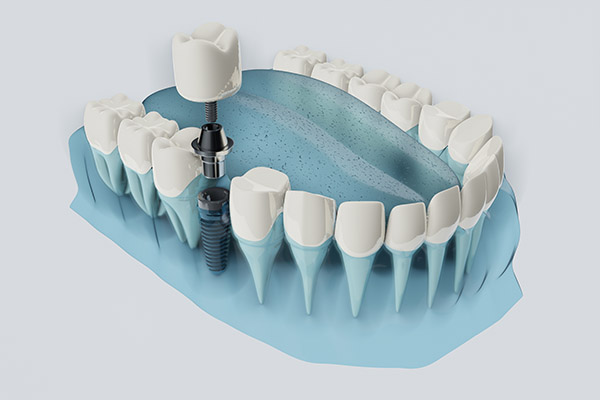 Maintaining oral health is important to one's overall well-being, and missing teeth can negatively impact appearance and functionality. Dental implants are a durable and long-lasting solution for missing teeth. One of the most compelling advantages of dental implants is their ability to prevent bone loss. Dental implants not only restore your smile's appearance but also safeguard the foundation of your oral health.
Maintaining oral health is important to one's overall well-being, and missing teeth can negatively impact appearance and functionality. Dental implants are a durable and long-lasting solution for missing teeth. One of the most compelling advantages of dental implants is their ability to prevent bone loss. Dental implants not only restore your smile's appearance but also safeguard the foundation of your oral health.
The link between teeth and bone health
When chewing, the force exerted on the teeth stimulates the jawbone. This stimulation is essential for maintaining bone density and strength. When missing a tooth, whether due to injury, decay, or extraction, this essential stimulus is also lost and can lead to future deterioration and health issues.
Traditional tooth replacement options and bone loss
Traditional methods of tooth replacement options, such as bridges and dentures, do not target the issue of bone loss. In some cases, they can make it worse. Dentures sit on top of the gums and do not provide the necessary stimulation to the underlying bone. Over time, this can lead to significant bone resorption, causing changes in facial structure and potentially leading to discomfort and instability.
Although bridges restore functionality and aesthetics, they rely on neighboring teeth for support. This involves removing enamel and placing crowns on adjacent teeth, which can weaken them over time. Additionally, bridges do not address the underlying issue of bone loss.
The role of dental implants
Dental implants can mimic a tooth's natural structure by acting as an artificial tooth root. They consist of a biocompatible titanium post that an oral surgeon surgically places into the jawbone. Over time, the post fuses with the jawbone through osseointegration. This process provides the necessary stimulation to the jawbone, preventing the resorption that typically occurs after one loses a tooth.
During osseointegration, living bone cells attach and integrate with the surface of the titanium implant. This process results in a strong and stable foundation for the replacement tooth or crown. The implant becomes part of the patient's natural anatomy, allowing for normal chewing and speaking functions.
Preventing facial collapse
One of the most significant consequences of advanced bone loss in the jaw is a condition known as facial collapse. This condition occurs when the lower third of the face loses its vertical dimension, leading to a sunken and aged appearance. Dental implants can prevent facial collapse by maintaining the natural height and contour of the patient's jawbone.
Long-term benefits for oral health
Beyond improving a smile's appearance, preventing bone loss with dental implants has long-term benefits for oral health. Maintaining a healthy jawbone ensures that neighboring teeth remain stable and properly aligned. It also prevents potential issues with gum tissue. Gum recession can occur when there is an absence of bone support and increases the risk of periodontal disease.
Protect your smile’s health with dental implants
By mimicking the structure of a natural tooth, dental implants stimulate the jawbone and prevent future bone loss and other oral health issues. If you are considering tooth replacement options, schedule a consultation at Premier Oral Surgery & Implantology Center. Our oral surgeon and team can help determine if dental implants are the right option for your oral health needs.
Request an appointment or call Premier Oral Surgery & Implantology Center at 203-347-4046 for an appointment in our Cos Cob office.
Related Posts
A dental implant is considered the gold standard of dental restorations. Titanium rods act as dental roots that stimulate the jawbone. The artificial crowns replace the missing ones above the gumline. These restorations are what you need to have stable, natural-looking teeth again. Here are the details about the role of a dental implant in…
Preparation is a crucial part of the success of procedures involving dental implants. When it comes to tooth replacement, implants offer a solution similar to having a natural tooth again. However, patients should understand the process and the steps they must take to lay the foundation for a safe and effective procedure.The entire dental implant…
Dental implants support permanent artificial teeth, making them a popular alternative to dentures. Dental implants require oral surgery, providing a durable, effective, and natural-looking tooth replacement. If you are considering implants, preparing for the postoperative period can make for a much smoother recovery.Dental implants are biocompatible metal or ceramic posts inserted into the jaw. They…
